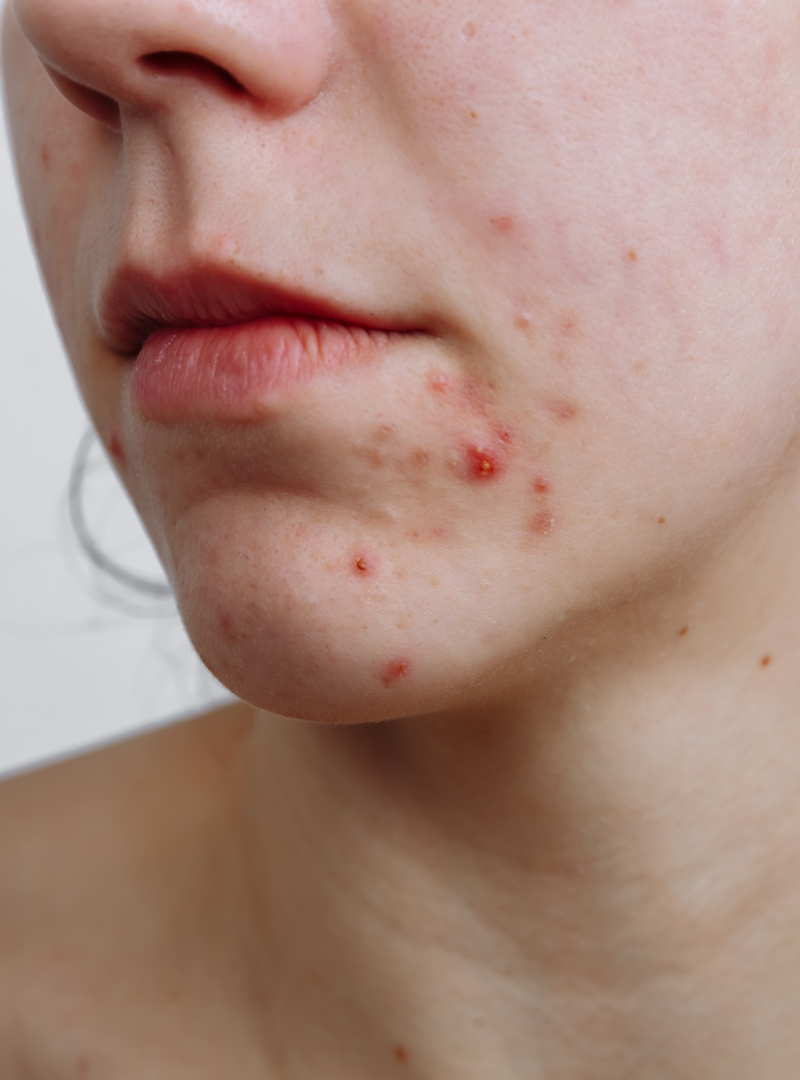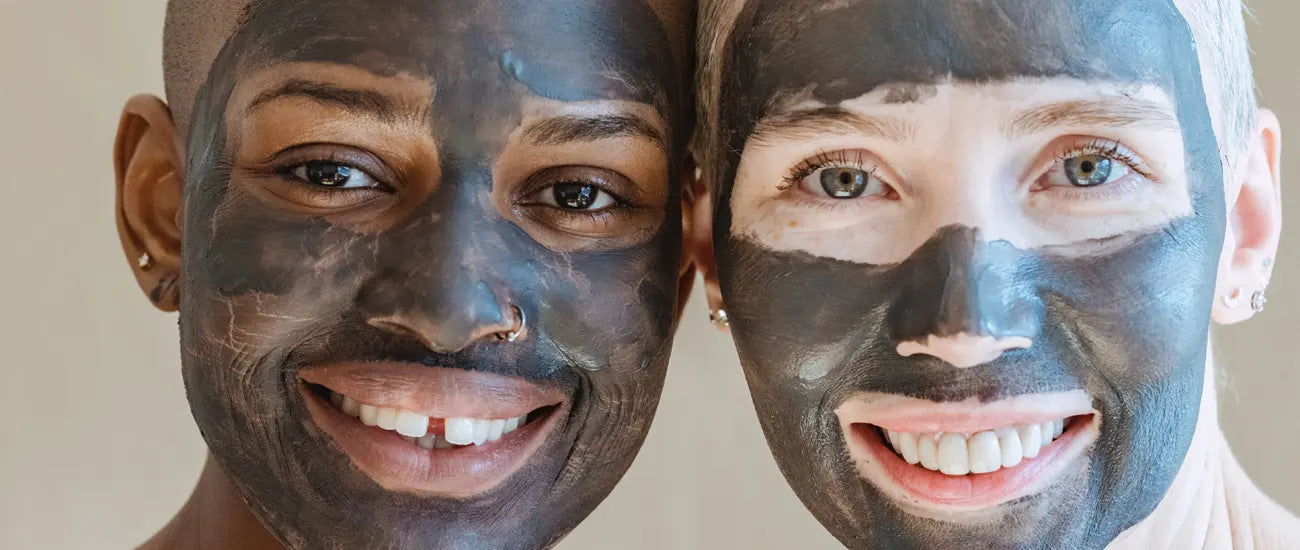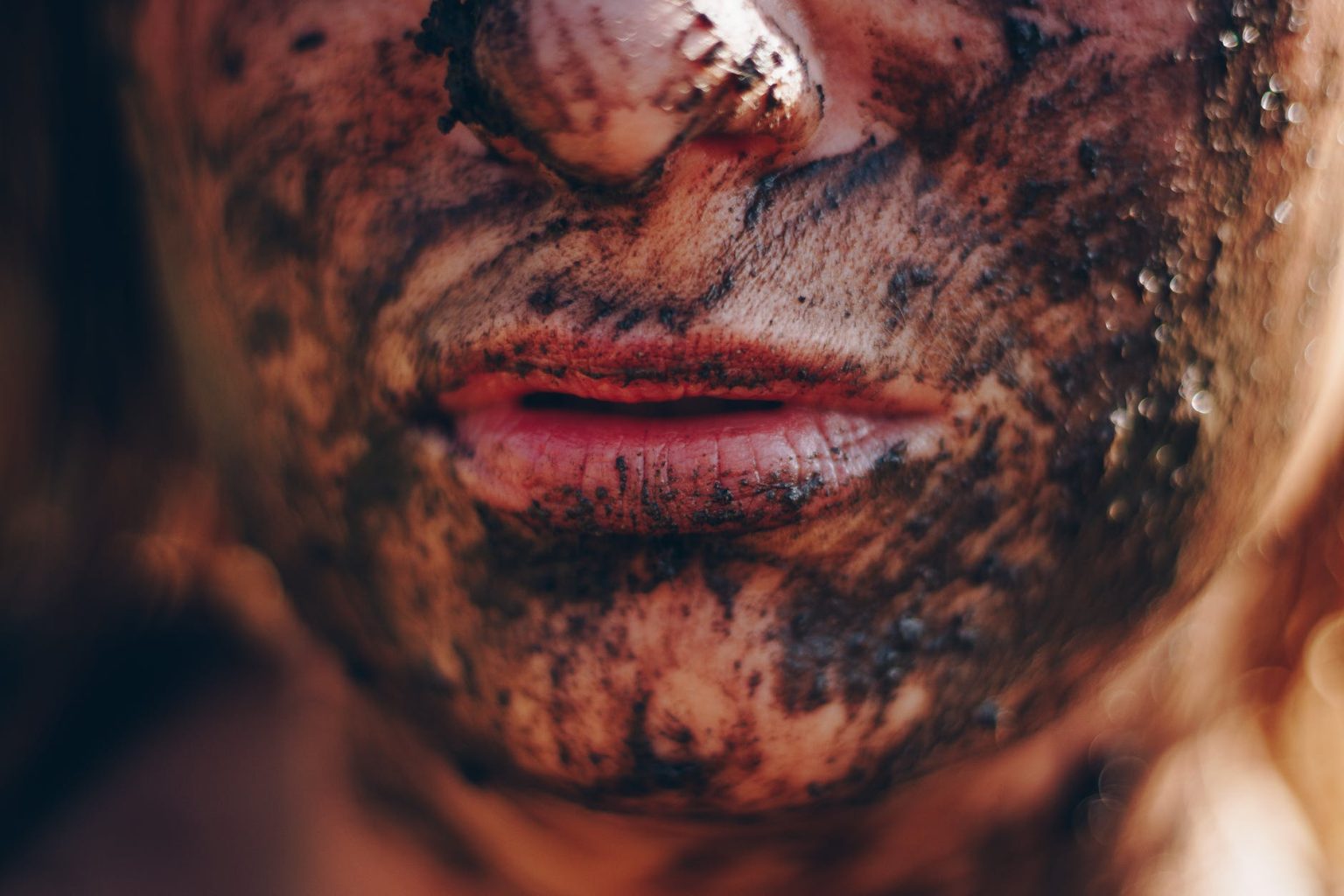What Egg Whites Are Made Of
Egg whites, also known as albumen, consist of approximately 90% water and 10% proteins, primarily ovalbumin. These proteins are not bioavailable through topical application, meaning they can't be absorbed through the skin; the skin acts as a barrier, and large molecules like proteins do not penetrate it easily unless they are hydrolyzed or encapsulated in specialized formulations. (1)
Egg whites contain minimal nutrients beyond protein, and the skin's protective barrier restricts the absorption of these molecules.
Claimed Benefits and Why They Don’t Hold Up
Shrinking pores, Tightening the skin, Absorbing excess oil, Reducing acne.
Advocates of egg white masks claim they can tighten the skin, reduce pore size, and absorb excess oil. These claims however are unsubstantiated.
1. Shrinking Pores
The claim: Egg whites shrink or “close” pores.
The reality: Pores are structural openings in the skin that release sweat and sebum; they do not open or close like doors — they only appear smaller when either the skin is less congested, oily or inflamed, or when the pores are less impacted with sebum and debris.
Pores appear enlarged because of plugs impacting or filling the pores. These plugs are made of sebum, oil, dirt, debris, and dead skin cells. As these plugs grow in size pores stretch and enlarge appearing larger than what they actually are. Pores can also appear enlarged as the elasticity of the skin declines with age.
The temporary "shrinking" effect observed after applying egg white is 100% an illusion, a temporary effect created while the mask is on the skin. As the egg white dries, it forms a tightening film that contracts on the skin, giving the illusion of smaller pores. This is purely transient. The size of pores is determined by genetics, age, skin elasticity, and oil production — not by topical protein application. (2)
2. Tightening the Skin
The claim: Egg whites can firm or lift the skin.
The reality: As mentioned earlier, any sensation of tightness following application is due to protein coagulation as the albumen dries — not a true lifting effect. This tightening sensation is temporary and superficial, often confused with efficacy. There is no peer-reviewed scientific evidence demonstrating long-term skin-tightening or collagen-boosting effects from egg whites.
3. Absorbing Excess Oil
The claim: Egg whites can absorb sebum and help control oily skin.
The reality: Egg whites have a mild astringent effect due to their drying nature, which may momentarily reduce surface shine. However, they do not chemically interact with or absorb sebum in the way clay or activated charcoal does. Furthermore, excessive drying can lead to disruption of the skin barrier, prompting a rebound effect where sebaceous glands produce even more oil to compensate for the moisture loss.
Over-drying oily skin may stimulate more sebum production and compromise barrier function.
4. Reducing Acne
The claim: Egg whites have antibacterial properties and can reduce acne.
The reality: While lysozyme, an enzyme found in egg white, has some antibacterial action — especially against gram-positive bacteria — its concentration in topical application is minimal and not proven effective against Cutibacterium acnes, the bacterium associated with acne. Moreover, raw egg poses a significant risk of bacterial contamination, particularly Salmonella, which can worsen inflammatory skin conditions or cause secondary infections if the skin barrier is compromised.
Dermatological Risks and Bacterial Concerns
The most significant concern with applying raw egg whites to the face is the risk of bacterial contamination — particularly from Salmonella enterica. Infections resulting from contaminated raw eggs can cause gastrointestinal distress if ingested, and although rare, can also lead to localized skin infections if introduced through micro-abrasions or damaged skin. (3)
A 2007 report in Clinical Microbiology and Infection confirmed that Salmonella can be transmitted through handling and applying raw egg to mucosal surfaces and broken skin. (4)
This risk is compounded by the fact that raw eggs may harbor Salmonella even when visually normal and uncracked.
Additional Dermatological Complications
Dermatologists have raised other concerns as well:
- Contact dermatitis: The proteins in egg whites may trigger allergic reactions, including redness, itching, and swelling.
- Secondary Infections: Applying raw egg whites to areas with cuts or abrasions can introduce bacteria, increasing the risk of secondary infections.
- Scarring: If infection sets in, especially from Salmonella or Staphylococcus aureus, it may lead to skin damage and permanent scarring.
- Barrier disruption: Frequent use of drying masks (like egg whites) may compromise the skin’s natural barrier, increasing transepidermal water loss (TEWL) and making the skin more prone to irritation (5).
- Allergic Reactions: Individuals with egg allergies may experience adverse reactions, including redness, itching, and swelling, upon topical application of egg whites.
Are There Any Proven Benefits?
Aside from anecdotal claims, there is no scientifically valid evidence supporting the use of egg white masks for improving skin health. The minimal protein content and lack of transdermal delivery mechanisms make egg whites ineffective as a skincare treatment.
Safer and More Effective Alternatives
For those seeking firmer, clearer, or smoother skin, consider these dermatologically approved alternatives:
- Niacinamide: Reduces oil production and improves skin texture.
- Salicylic Acid: Exfoliates pores and reduces acne.
- Peptides: Improve skin elasticity and promote collagen production.
- Kaolin Clay: Absorbs oil without risking contamination.
These ingredients are widely studied and available in formulations designed for safe and effective skin delivery.
Final Thoughts
Using raw egg whites as a facial mask may seem harmless or even “natural,” but the truth is there are no proven benefits — and the risks are far too great. From bacterial infections to skin irritation and ineffective results, egg whites belong in your kitchen, not on your face.






